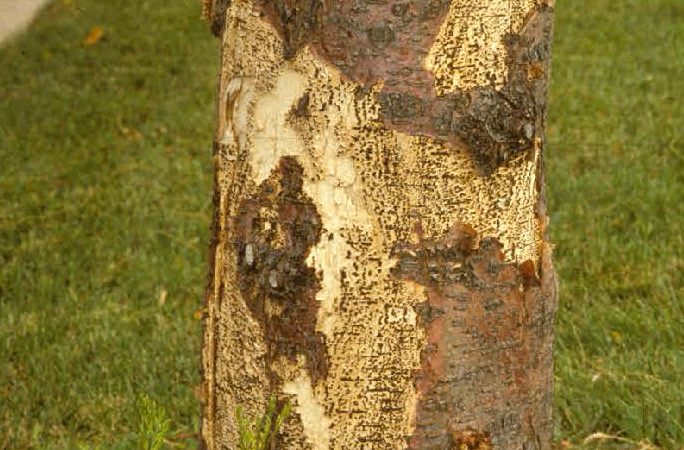Nectria canker is a common problem found with honey locust trees that impacts not only the health of the tree, but its overall appearance as well. This fungal infection can severely weaken the honey locust, causing dieback in the branches and even be lethal to the tree in a severe case.
Continue reading to learn more about what it is, how to recognize it and tips to help you prevent/manage your honey locust trees to help keep them healthy.
WHAT IS NECTRIA CANKER?
Nectria cankers are a fungal disease that affects honey locust trees. They are caused by a few different species of fungus, but can cause the same damage and an untimely death in trees. They are the biggest killer of honey locust trees along the Front Range.
WHAT DOES NECTRIA CANKER DO?
This fungal disease blocks the vascular system of the tree and causes branches to die due to lack of adequate water and if left unchecked the tree can also die.
HOW TO RECOGNIZE NECTRIA CANKER?
- Dieback in the canopy.
- Branches and stems seem to leak sap.
- Bark peels off and shows areas with fruiting bodies visible.
- Yellowing inner tissue below peeling bark.
WHY IS IT IMPORTANT TO ACT ON THIS DISEASE?
- Honeylocust Borers are more likely to attack trees with an existing canker infection and cause further vascular damage.
- If the fungus spreads into the main trunk it can be difficult for the tree to recover.
WHAT CAN BE DONE?
- Water trees when necessary, but not too often to avoid over saturating the soil and causing root rot.
- Prune off all infected branches to prevent spread into the main trunk.
- Avoid over pruning the tree to reduce stress, especially during the summer or drier weather.
- Avoid planting locust trees in small tree borders or in places where roots cannot fully develop.
- Protect the base of the tree as much as possible from lawn mowers and any other machines that could cause damage.
TREE DISEASES SIMILAR TO NECTRIA CANKER
- Cytospora canker in spruces
- Dutch elm disease in elms caused by Elm Bark Beetles
- Blue Stain Fungus in pines caused by Mountain Pine Beetle
We hope this blog has provided some valuable information on nectria canker. Please visit our Plant Health Care Services page to learn more about all of our tree health services. If you suspect your trees have been infected, contact an ISA Certified Arborist at Splintered Forest today to get your free assessment of your honey locust tree. Request a Free Estimate or give us a call at (303) 819-9840.
Read more about tree fungus. Understanding common tree diseases is essential for maintaining the health of your trees.
Sources:
*Honeylocust Diseases
*Insect and Mite Pests of Honeylocust

